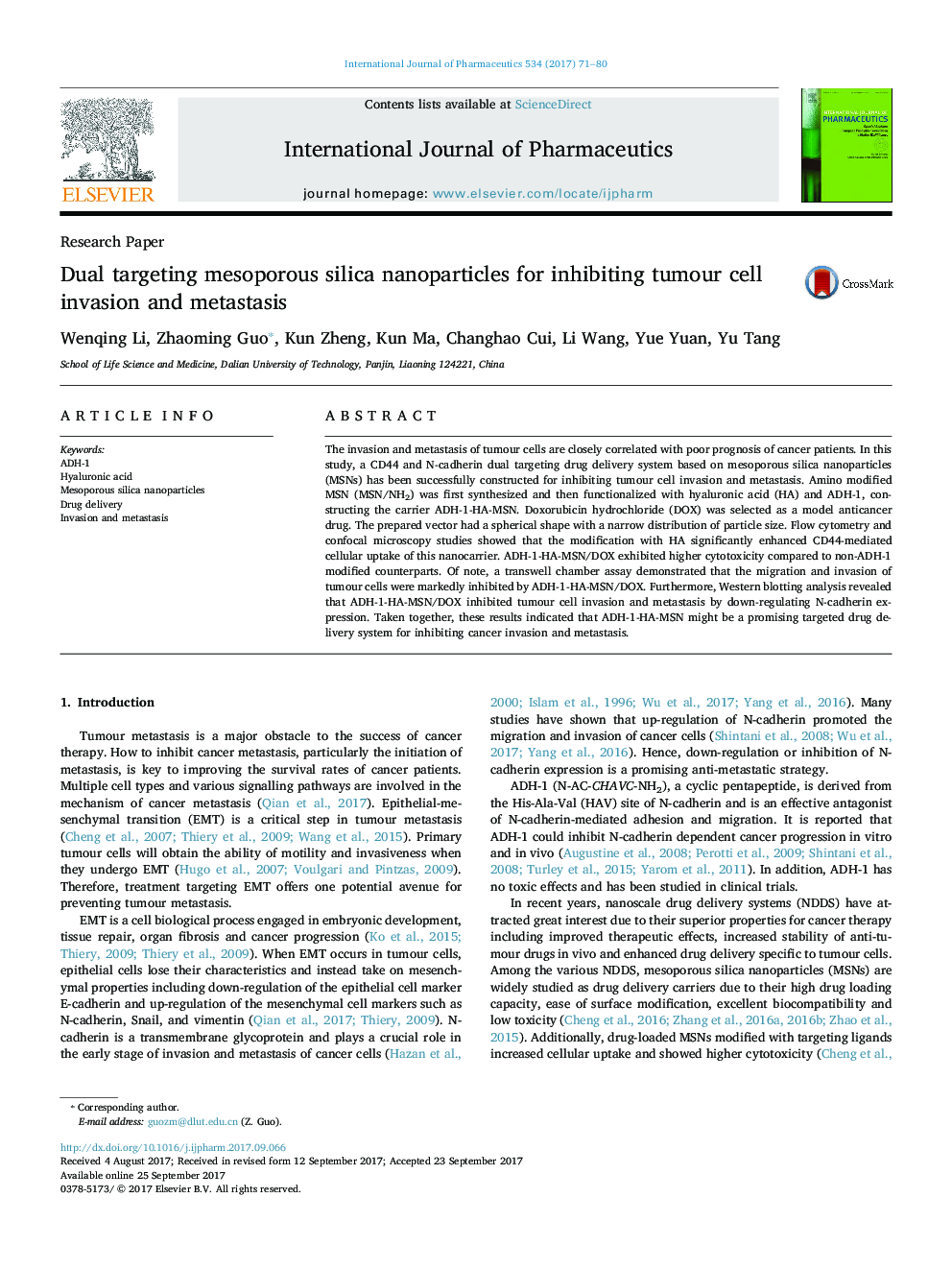| Article ID | Journal | Published Year | Pages | File Type |
|---|---|---|---|---|
| 5549884 | International Journal of Pharmaceutics | 2017 | 10 Pages |
The invasion and metastasis of tumour cells are closely correlated with poor prognosis of cancer patients. In this study, a CD44 and N-cadherin dual targeting drug delivery system based on mesoporous silica nanoparticles (MSNs) has been successfully constructed for inhibiting tumour cell invasion and metastasis. Amino modified MSN (MSN/NH2) was first synthesized and then functionalized with hyaluronic acid (HA) and ADH-1, constructing the carrier ADH-1-HA-MSN. Doxorubicin hydrochloride (DOX) was selected as a model anticancer drug. The prepared vector had a spherical shape with a narrow distribution of particle size. Flow cytometry and confocal microscopy studies showed that the modification with HA significantly enhanced CD44-mediated cellular uptake of this nanocarrier. ADH-1-HA-MSN/DOX exhibited higher cytotoxicity compared to non-ADH-1 modified counterparts. Of note, a transwell chamber assay demonstrated that the migration and invasion of tumour cells were markedly inhibited by ADH-1-HA-MSN/DOX. Furthermore, Western blotting analysis revealed that ADH-1-HA-MSN/DOX inhibited tumour cell invasion and metastasis by down-regulating N-cadherin expression. Taken together, these results indicated that ADH-1-HA-MSN might be a promising targeted drug delivery system for inhibiting cancer invasion and metastasis.
Graphical abstractDownload high-res image (335KB)Download full-size image
